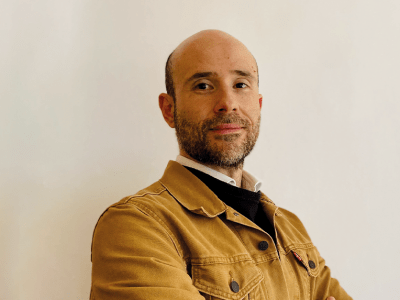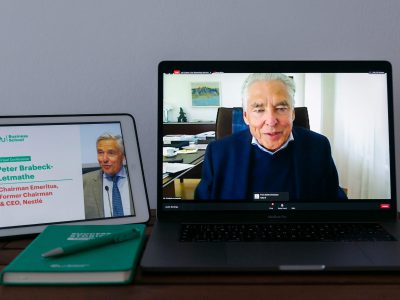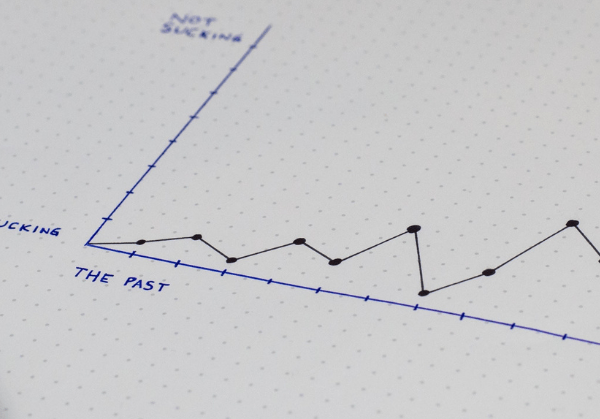Striking a Balance in the Global Pharmaceutical Company
Due to the ongoing pandemic, the pharmaceutical industry naturally resides at the forefront of our collective attention. Given this, EU Business School students were fortunate to receive a timely and insightful presentation from Dirk Otto, the Head of Marketing at Boehringer Ingelheim.
Boehringer Ingelheim is a family-owned pharmaceutical company with 50,000 employees and 175 affiliated companies worldwide In his presentation, Dirk outlined the overlapping influences that make this industry so unique, before going on to explain how global pharmaceutical companies navigate (often competing) pressures in order to “strike a balance.”
An Introduction to Boehringer Ingelheim
Dirk identified four fundamental elements that defined and distinguished the work of Boehringer Ingelheim:
- Its complexity. Production requires sophisticated and technical methods, including a lengthy and detailed period of research and development.
- Its regulation. Every step in the process is strictly government-regulated. From developing to storing to transporting to selling the product, there are tight regulations to adhere to.
- Its global nature. Unlike other multinationals that work through distributors in foreign countries, Boehringer Ingelheim has established worldwide corporate entities.
- Its focus on innovation. Unlike other pharmaceutical companies that focus on replicating pre-existing products at a reduced cost, Boehringer Ingelheim invests 20% of turnover back into research and development in order to continually develop and launch new products.
Dirk explained that striking a balance between these elements was what presented the greatest challenges and rewards of working in the pharmaceutical industry.
The constitution of Boehringer Ingelheim consists of three key values. Firstly, it is entirely independent and family-owned, and it always has been. In the context of the pharmaceutical industry, this is quite unusual.
Secondly, it creates value through innovation for its customers. This means that it constantly strives to address unmet needs by developing new products. A disease map is assessed every few years which dictates the research direction of the company.
Lastly, Boehringer Ingelheim’s constitution asserts that it is powered by its people. Boehringer Ingelheim has 28 research and development sites around the world, so the people in question are truly spread globally. Perhaps surprisingly to outsiders, more people work in marketing and sales than in the company’s production teams. However, this makes more sense when the complexity of the products is taken into account: skilled staff members are required to explain these products to a variety of diverse stakeholders.
The Unique Position of Pharmaceutical Companies in a Business Context
Drawing on Brian D. Smith’s book, “Leadership in the Life Sciences”, Dirk identified four ways in which the pharmaceutical industry is exceptional:
1. There is an implied social contract
Because the pharmaceutical industry is concerned with prolonging life and helping people live longer and better lives, there is a much more complex relationship at play than the typical business-customer one. For example, because pharmaceutical industries sell their products to healthcare bodies, the customer is often a government as opposed to the eventual consumer.
Dirk sees a pharmaceutical company’s license to operate as a social contract, although heavy regulation polices each stage of the process. He also addressed the sensitivity of this field of work. After all, the pharmaceutical industry indirectly extracts economic results from the diseases of human beings: it is an industry based on vulnerable people. This implies a public responsibility beyond a private business relationship.
Returns have to be shared amongst the shareholders who took an economic risk by providing the funds in the first place. However, profit is also reinvested into research. Business becomes the model by which pharmaceutical companies generate the necessary funds to develop new health-promoting solutions.
2. There is significant complexity in value creation and value definition
The pharmaceutical industry is complex on both the demand and offer side, and this is not only because of the regulations that must be navigated. The main reason for this complexity is that the person taking the medicine isn’t usually the same person who is paying for the product. There are intermediary stakeholders to deal with, such as public and private healthcare systems.
The U.S.A is an exception in that it permits pharmaceutical companies to communicate directly with the final customer through advertisements Usually, the person who determines which drug the patient receives is a doctor, nurse or pharmacist, and they are often acting on the advice of treatment guidelines. Prices are also negotiated or set by government bodies.
3. There is an unusual magnitude and longevity of risk in the industry
Because each product takes between 10-15 years to develop, pharmaceutical companies have to think long-term when it comes to planning: Dirk said that 30 years was a reasonable timescale to consider.
The business model requires companies to use profit from products that were launched 8-10 years ago in their plan to develop products which won’t reach the market for another 20 years.
Dirk shared that only 1 in 100 projects actually make it to market, which makes this experimentation stage very expensive and risky. Even when a product has made it to launch, it’s likely to have required an investment of around 1 billion euros to get there. When a product is successfully launched, companies enjoy 10 years of exclusivity in which they have to recoup sufficient funds to pay for future development projects.
4. The workforce is composed of high-level experts in their field
To work in the pharmaceutical industry, you don’t need to have a medical background, and Dirk is an example of this. However, there is a high chance you will need to work closely with medical experts. When Dirk communicates to stakeholders, he shared that the least-qualified member of his audience is a general practitioner, and a general practitioner is of course a very qualified health professional. This means he needs a high-level understanding of the products they sell.
In his work, Dirk has been called upon to consult with people who represent the top 5 in their field worldwide. Pharmaceutical companies have to hire people who are able to hold their ground in these conversations. Although this represents a huge challenge, meeting such interesting and intelligent people is one thing Dirk especially likes about his work, alongside its international scope.
Through his presentation, Dirk showed EU Business School students what makes the pharmaceutical industry such a unique and impactful environment to work in.










